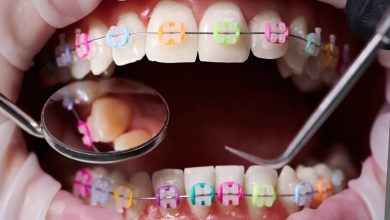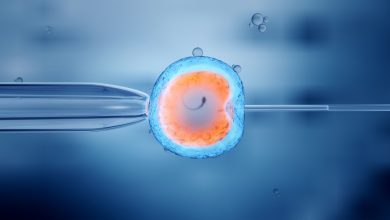What are some possible complications after recovering from COVID-19?
complications after recovering from COVID-19

People infected with COVID-19 (coronavirus) may have moderate symptoms or be completely asymptomatic, according to current findings. The duration of the coronavirus infection in the body varies from person to person, exposure to the virus and intensity of infection.
According to the WHO, patients will recover totally after an incubation period of 10 to 14 days, and sometimes more. COVID-19 instances that are mild to moderate will heal in about 14 days. COVID-19 symptoms might last anywhere from 20 to 45 days in some cases. Patients may experience post-COVID problems as a result of the coronavirus’s long-term effects.
The coronavirus that causes severe acute respiratory syndrome 2 (SARS-CoV-2) can harm the lungs, brain, blood vessels, skin, nerves, kidneys, and heart, increasing the risk of long-term health problems. The virus, however, can stay in the body for up to three months following diagnosis. This might result in some people receiving a secondary positive test result after they have recovered, however that does not necessarily mean the virus is still infectious.
Post COVID-19 symptoms are long-term conditions that occur after infection with the virus that causes COVID-19. They cannot be passed on to others.
What are post-COVID symptoms and complications?
Post COVID symptom: People with post COVID-19 symptoms may have difficulty functioning in their everyday life. Their condition may affect their ability to perform day to day activities like jobs or household work. There are more than 200 symptoms reported by WHO but the most common symptoms seen after COVID-19 condition are:
- Fatigue
- Shortness of breath or difficulty breathing
- Brain fog
- Memory, concentration or sleep problems
- Persistent cough
- Chest pain
- Trouble speaking
- Muscle aches
- Loss of smell
- Loss of taste
- Depression or anxiety
- Fever
Post COVID complications: after recovery from COVID-19 infection a person may experience some severe complications apart from above post COVID symptoms like:
- Pancreatitis: it is an inflammation of the pancreas.
- Pulmonary fibrosis: is a lung disease that happens when lung tissue becomes damaged and scarred and it occurs due to progressive respiratory infections.
- Neurological symptoms: like seizures, stroke, muscle weakness, tingling or numbness in the hands and feet
- Gastrointestinal symptoms: like loss of appetite, nausea, vomiting, diarrhea, and abdominal pain or discomfort.
- Chronic fatigue syndrome: it is a disorder in which extreme fatigue occurs that lasts for at least six months.
- Myocardial infarction: it is a chest discomfort with or without dyspnea, nausea, and diaphoresis.
- Deep vein thrombosis: in this condition clotting of blood happens into a deep vein.
- Hemothorax: in this condition blood is collected in the space between the chest wall and the lung.
- Pneumothorax: in this condition air leaks into the space between the lungs and chest wall.
- Arthritis: swelling and inflammation inside one or more of your joints.
- Fungal infections: like mucormycosis, aspergillosis, yellow fungus etc.
What is the post COVID-19 risk of organ damage?
Severe acute respiratory syndrome coronavirus 2 (SARS-CoV-2) is a critical form of acute respiratory distress. The coronavirus infection causes long-term immune system alterations, mainly to the lungs. Not only lungs, it affects multiple organs if long-term COVID-19 infection occurs such as, brain, blood vessels, skin, nerves, kidney, and heart. Metabolic, musculoskeletal, cardiovascular, and neurological problems are all possible side effects of the condition. Organ damage increases the long-term health difficulties.
coronavirus-19 mostly affects the following organs and body components, according to recent data:
- Lungs: The tiny branches of air tubes in the lungs that are called alveolus. Where the lung and the blood exchange oxygen and carbon dioxide during the process of breathing in and breathing out. Might be permanently damaged by pneumonia caused by COVID-19. Long-term breathing problems occur mostly by scar tissue in the lungs.
- Heart: Even in persons who only had minor COVID-19 symptoms, patients who recovered from COVID-19 showed irreversible tissue loss of the heart muscle. In the future, this could increase the risk of myocardial infarction (MI) and heart failure, as well as other heart-related life-threatening issues.
- Brain: There have been numerous reports of young people with COVID-19 suffering from neurological symptoms such as muscle weakness, tingling or numbness in the hands and feet, which can lead to paralysis that is Guillain-Barré syndrome, dizziness, sudden blackout, confusion, delirium, seizures, and stroke. COVID-19 has also been linked to an increased risk of Alzheimer’s disease and Parkinson’s disease.
- Kidney: It is a condition in which people with COVID-19 have an abrupt loss of renal function. In severe situations, dialysis may be required, however this type of kidney impairment can sometimes be reversed. People with CKD are more likely to suffer severe symptoms after recovering from COVID-19. Therefore, it is necessary to take all required steps to avoid infection.
Read More: Humble Family Practice
What precautions and care should be done Post-coronavirus ?
Precaution: Preventing coronavirus infection is the greatest strategy to avoid post-COVID problems. Getting vaccinated against COVID-19 as soon as possible is the greatest approach to prevent yourself from serious COVID-19 disease and can also help protect those around you if you are eligible. Even after immunization, it is critical to continue to observe public health and social measures. Dr. recommend Ivermectin to recover from covide
Care: after the recovery from the SARS-CoV-2 patient requires too much care and medical attention to avoid further medical disorders. Patients should follow some tips to overcome it safely such as:
-
-
Nutritious Diet:
To speed up healing, it’s critical to eat a well-balanced, nutritious diet rich in immune-boosting vitamins and minerals, such as fruits, vegetables, eggs, and healthy chicken. Because some individuals have unexplained weight loss or increase, appropriate calories must be delivered based on the patient’s nutritional state. To avoid muscle loss and improve the strength of respiratory muscles, a daily protein intake of 1.2-1.3 g/kg is recommended, combined with a 50% increase in branched-chain amino acid supplementation.
-
Keep Yourself Hydrated:
Drink a lot of water. Drinking warm water, according to recommendations, can aid individuals with scratchy throats or dry coughs by improving circulation and reducing nasal congestion. Anti-inflammatory ingredients like honey and herbs like “mulethi” can be used in kadhas and other concoctions to boost immunity.
-
Rest, Exercise And Meditation:
After a COVID-19 infection, your body is still vulnerable to infections and consequences. Getting enough rest and sleep might aid your body’s recovery. Don’t overwork yourself. COVID sufferers should do breathing exercises to help with their respiratory distress and congestion. With the guidance of a physiotherapist, you can eliminate mucus from your chest by using the active cycle of breathing methods (ACBT). To enhance physical strength and function, doctors advise patients not to stay in bed all day and to try to sit in a chair for meals and to engage in activities such as brief walks. Yoga and meditation, particularly yoga-asanas like pranayama, can aid with recuperation and stress linked with COVID -19 infection. Patients with respiratory symptoms, such as pneumonia, should rest for a week or ten days before resuming exercise, while those with chronic heart problems should take a break of two to three weeks before returning to their pre-illness activity routine.
-
-
Avoid Indulging In Deleterious Habits:
Avoid smoking and drinking alcohol, as they are both risk factors for COVID infection and detract from the body’s natural healing processes. Avoid smoking and drinking alcohol, as they are both risk factors for COVID infection and detract from the body’s natural healing processes
-
Medications:
Take your medicines as directed by your medical expert on a regular basis. For the first few weeks after being declared COVID free, patients with a serious infection or respiratory problems are asked to self-monitor their temperature, SPO2 levels, blood pressure, and blood sugar levels at home.
-
Test :
The following tests are recommended for patients who have recovered from coronavirus19 infection:
- Antibody testing for IgG: Antibodies in your blood are evaluated by IgG antibody testing to determine how immune-protected you are.
- CBC (complete blood count): CBC tests are used to evaluate the various types of cells in your blood (RBCs, WBCs, platelets). This test can assist your doctor in determining how well you have recovered from the COVID infection. In addition, the test also acts as a guide about the additional measures that are required for your body post-recovery.
- Glucose and cholesterol tests: COVID -19 infection has been linked to alterations in the patient’s glucose and blood pressure levels. If you have pre-existing disorders like type-1 or type-2 diabetes, abnormal cholesterol, or are at risk for cardiac issues, it’s critical to have these tests and keep track of your blood glucose and cholesterol levels.
- Vitamin D testing: Because vitamin D is an essential component that aids in immune function, supplementation is critical for a faster recovery from COVID infection.
Conclusion
More data from potential trials is needed to properly analyze the normal cycle of COVID-19 infection and identify the long-term COVID-19 syndrome. From a medical perspective, physicians should be aware of the symptoms, signs, and biomarkers present in COVID-19-affected patients in order to quickly assess, identify, and limit long COVID-19 progression, reduce the risk of chronic sequelae, and assist patients reclaim their pre-COVID-19 health.





